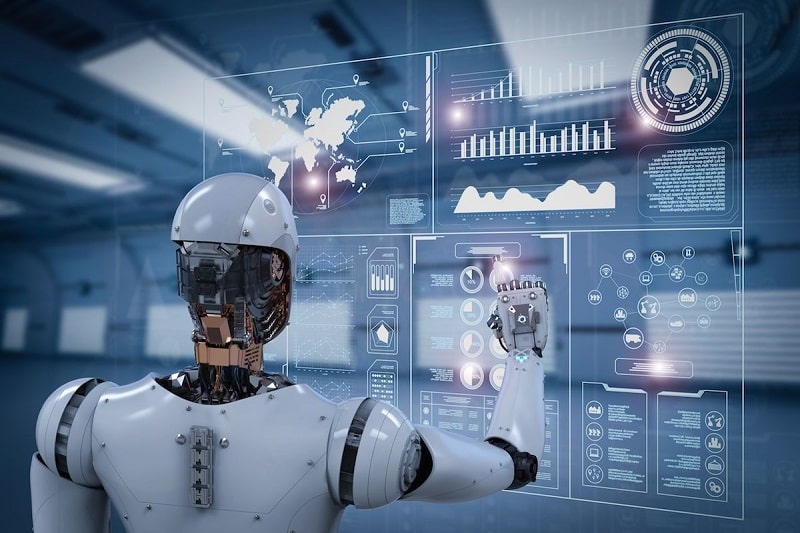World Geostrategic Insights interview with Massimo Ortolani on the geoeconomic implications of the widespread use of artificial intelligence (AI) applications.

Massimo Ortolani is a lecturer, economist, international consultant, and an analyst of the major geoeconomic impacts of the artificial intelligence revolution. He advises on risks and opportunities arising from cross-border investment/exports-assessment of geo-economic risks-training coaches on appropriate techniques and tools to mitigate these risks.
Developments in artificial intelligence (AI) are having a disruptive impact, some analysts call it the “atomic bomb” of the future, what is your opinion? Is AI assuming a significant role in the geopolitical and geoeconomic competition?
Perhaps it is an exaggeration to call generative artificial intelligence (AI) the atomic bomb of the future, but it is certainly true that it represents a cognitive revolution that largely transcends the economic one, in that AI, as a generalist technology, helps to do many different things together.
From an economic intelligence (EI) perspective, I believe that it is precisely in geopolitical and geoeconomic competition between states, or alliances of states, where the application areas of AI are the most impactful today. Indeed, what will determine greater hegemonic power will be the margin of strategic superiority gained in the potential use of AI, and also to be exploited in combination with the deterrence allowed by conventional weapons.
In this regard, however, it is necessary to remember that the benefit of the increased use of AI depends in turn on the endowment of the increased computing power enabled by available quantum or exascale computers, and the professionalized personnel that can be hired for this purpose. It should also be noted that, on a strictly military level, experiments are advancing in the application of AI to so-called autonomous weapons, as well as to “wetwar” involving human-machine hybridization, i.e., the combination/connection (wetwar, precisely) from biological and organic material, interacting with AI-driven software.
What tasks may be assigned to AI in the area of economic intelligence?
On the intelligence side, tasks of generative AI will be to refine the inspection/information techniques of the ways in which the various contractual and financial transactions are capable of circumventing the sanction barriers that are now systematically created as weapons of hybrid warfare in general, and geoeconomic in particular.
On the other hand, as far as economic intelligence applications for the improvement of industrial policy in the pursuit of the national interest are concerned, the sectors to be prioritized as priorities for the facilitated deployment of AI are those in which the largest will be the estimated prospective increase in productivity, for each Euro of facilitation spent to alleviate the cost of corporate recourse to the use of AI itself. To date, the sectors identified as those most interested in improvements in production processes thanks to AI can generally be identified as: engineering, metal and steel, agribusiness, tourism, trade/e-commerce, and furniture and furnishings.
What impact are AI applications having in Italy?
University research has reported that in Italy the category with the largest number of AI initiatives is Business, with applications ranging from business organization to finance, legal, and architectural design.
It should be added, however, that the prediction of prospective improvements in productivity may always be altered by the different and specific use of worker training in these areas. Bearing in mind again that it will always be AI to point out the optimal training techniques (open learning, microlearning, on-demand or proactive lecture, etc.) to be applied by each company for its own upskilling and/or reskilling needs.
It has also already been observed that nations capable to avail of a competitive advantage in terms of time anticipation of AI tools would benefit from the additional potential of being able to register many new trademarks and patents, due to the more accelerated algorithmic simulations of the market acceptance of the relevant products or services, compared to traditional surveys. With regard to Italy in particular, while it is true that more than 80 percent of CEOs have initiated the adoption of AI tools, or are preparing to do so within the year, there is a need to intensify collaboration between companies, industry associations and government officials, particularly for management guidance and the sharing of the cost of training, which is bound to impact the SME sector most acutely.
Indeed, from the point of view of economic intelligence, it should be borne in mind that the ‘industrial policy objective cannot be exhausted in increasing productivity alone, but also in improving relative competitiveness, in relation to those foreign competitors in the same sector who will also benefit from the AI catalyst. But, in this regard, one cannot help but raise some doubts about the ability of Italian SMEs to be able to incorporate the new AI production paradigm with the same timeliness as medium-sized or large companies. With AI’s competitive impacts potentially discriminatory and commensurate with company size or product craftsmanship, if not otherwiswe offset, in the latter, precisely, by increases in profitability obtainable from the more immediate and simple applications of AI on the MKT and e-commerce plan.
It is omitted for the moment to elaborate – on the level of economic intelligence – on the probable market segmentations for generative AI programs traceable to the modalities of their training, and related to the legislative/regulatory constraints and limits to which such training must conform. Given that algorithms trained in non-EU nations on a mass of data acquired without complying with the stringent constraints of the current European AI Act text for privacy compliance, they will not be able to be used in the EU, even if possibly more performant.
What considerations can be made about the risk-opportunity combination inherent in AI?
Leaving aside to dwell on the all too well-known risks of using AI in election campaigns (most recently the deep fake thanks to which thousands of Americans received a phone call with Biden’s fake voice), it is good to focus on two considerations about the risk-opportunity combination that AI inevitably brings.
In relation to the financial sphere, it has already been noted how intelligence cannot help in detecting and blocking extremely sophisticated, and for now seemingly futuristic, threats of manipulative nature. The example that is cited in this regard is that referable to the so-called “autonomous agent” in which, without any will of the developer, algorithmic technology is able to learn on its own how to manipulate stock exchanges.
But one could go on further by foreseeing the risk that algorithmic systems for the forecast of trends in financial markets become factors in generating “herd behavior,” involving similar financial decisions at market participants.
Moreover let think about the nature of the information provided by the algorithm. Continua con: in addition to the well-known limitation of the incomplete explicability of the analytical path through which this information was produced, there is the one related to the subliminal, at once and meta-economic nature of the cognitive contamination, which will come to be established between artificial intelligence and natural intelligence.
Since our natural intelligence also creates a knowledge (pre cognito) that we use at every cognitive. But does it in ways of information assimilation that are unconscious to us, and also as a result of emotional effects.
Once immersed in information generated more and more by AI-produced data and findings, one wonders what would be the meaning of our personal cognition, if not that of a hybrid cognition.
Moreover, with the consequence that someone in the future could be attracted to the idea of intellectual disengagement. Like those ready to question the commitment to continue learning, citing the fact that there is already a software (Chatbot) more capable of solving many complex problems.
Massimo Ortolani – Lecturer, economist, international consultant.
Image Source: Skillroads







